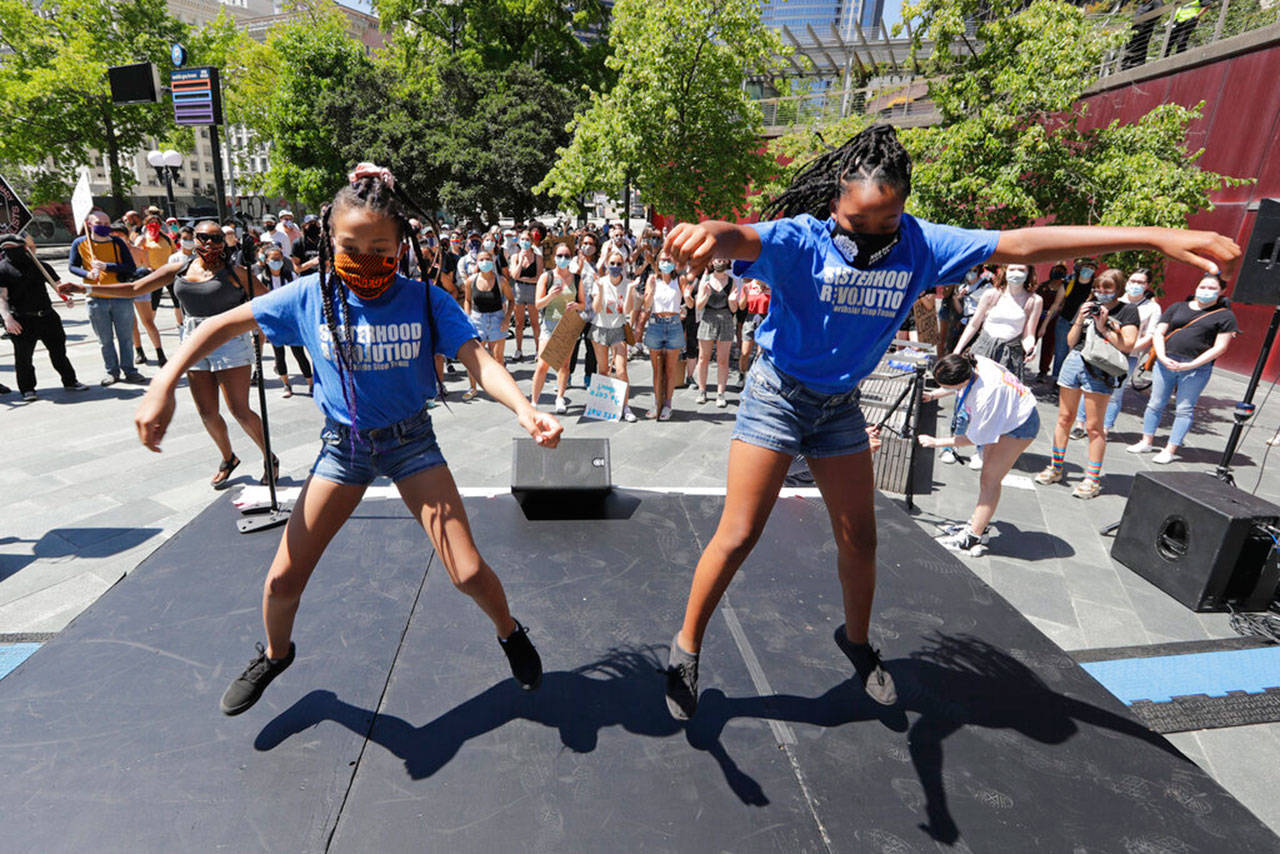By The Herald Editorial Board
The slaying of George Floyd in May really wasn’t a wake-up call regarding the larger issues of racial equity; that alarm has been sounding for decades and we’ve been hitting the snooze button repeatedly in the decades since the Civil Rights Era and the efforts of Martin Luther King Jr. and others.
But Floyd’s death and the nationwide demonstrations that followed for months now appear to have galvanized action in a range of areas not just concerning law enforcement and criminal justice reforms but for basic issues of equity for Black Americans and other people of color regarding education, employment, health care, housing and more, efforts to acknowledge and confront systemic racism and the structural disadvantages built into American society.
That action isn’t being considered only among individuals, community leaders and officials at the local, state and national level, but — in Washington state, at least — among employers and business leaders who were paying attention during the Black Lives Matter protests in Seattle and in communities across the state.
Among those shaken by Floyd’s killing and the demonstrations was former Washington state Gov. Chris Gregoire, now chief executive for Challenge Seattle, an alliance of the Puget Sound region’s largest employers addressing a range of civic issues.
“We had an emergency meeting of our members who basically asked, ‘What can we be doing?’” Gregoire said during a recent interview with The Herald Editorial Board.
In collaboration with Steve Mullin, president of Washington Roundtable, which represents the state’s major private-sector employers, the two organizations took a “deep dive,” Gregoire said, to educate themselves, asking Boston Consulting Group to compile a 130-page report that outlined the region’s and state’s inequities to help guide responses.
“We had a full briefing of both boards, and to be perfectly honest, I think there was an overwhelming sense of surprise at the breadth and the depth of the challenge,” she said.
The data compiled, she said, looked at the full life experience of Black Washingtonians.
Among the findings, compared to their white peers, Black Washingtonians:
Are 16 percent less likely to receive prenatal health care and 150 percent more likely to die in infancy;
Are 30 percent more likely to be taught by a less experienced teacher and 11 percent less likely to graduate high school;
Earn 74 cents for every dollar earned by a white worker doing similar work and are 45 percent less likely to own a home; and
Accumulate 87 percent less net personal worth and are 66 percent less likely to pass that wealth on to the next generation.
Out of that education, Gregoire and Mullin said, came a realization of the necessity to provide equity in all opportunities, that equity was achievable and that the private sector — as much as governments — had a role to play in creating lasting change.
Based on the report, the organizations drafted collective goals that Gregoire and Mullin have asked their member companies and other employers to sign on to, including a commitment to put financial resources — pledging $2 billion in investments over the next five years — behind the goals’ implementation.
So far, more than 60 employers — small, medium and large — have signed commitments to foster an inclusive culture in their workplaces to achieve racial equity in hiring, evaluation, compensation and promotion; promote diversity and equity among contractors, vendors and suppliers; provide anti-bias training and equity education for all employees; and support Black professionals and amplify the representation of Black employees and customers.
Beyond the workplace, the efforts also will build and expand on continuing policy efforts, Mullin said, such as those regarding educational attainment and access, home ownership and support for Black-owned businesses.
Several Snohomish County-based companies and groups have signed on, Mullin said, including the Economic Alliance of Snohomish County, Fluke, Fortive, Premera Blue Cross and Boeing.
While the report is focused on achieving equity for Black Washingtonians, Gregoire and Mullin said many of the actions outlined will be used to serve other communities of color and will be further addressed in future efforts focused on those communities.
Under the banner Washington Employers for Racial Equity, Gregoire said the report, its findings and the commitments were presented to members of the region’s and state’s Black community, many of whom had been interviewed in drafting the report.
The feedback reflected expectations that were appreciative but also realistic.
“Rightfully so, the question that’s always asked is ‘Is this going to be sustainable?’ They recognize this can’t be done overnight and they want to know that these CEOs are in for the long haul,” Gregoire said.
What community members said they needed to see, she said, were specifics and that the companies were going to “put some money on the table.”
One reflection from a Black community member that Gregoire found most compelling, she said, was the discussion that there needed to be an awakening, and not from within the Black community; that it had to come from others.
“Little did we know that it would come from white CEOs of companies small, medium and large. It gives us hope,” Gregoire said they were told.
The challenge now comes in putting these commitments into the daily workings of businesses, encouraging and supporting their practice.
The covid-19 pandemic has only deepened the disparities and the urgency in launching efforts to address those inequities.
“We’ve been really honest with each other, with our members that this took place over 400 years, so it cannot be corrected anytime soon. But time is of the essence to begin now,” the former governor said. “Be bold, get going.”
Talk to us
> Give us your news tips.
> Send us a letter to the editor.
> More Herald contact information.

























